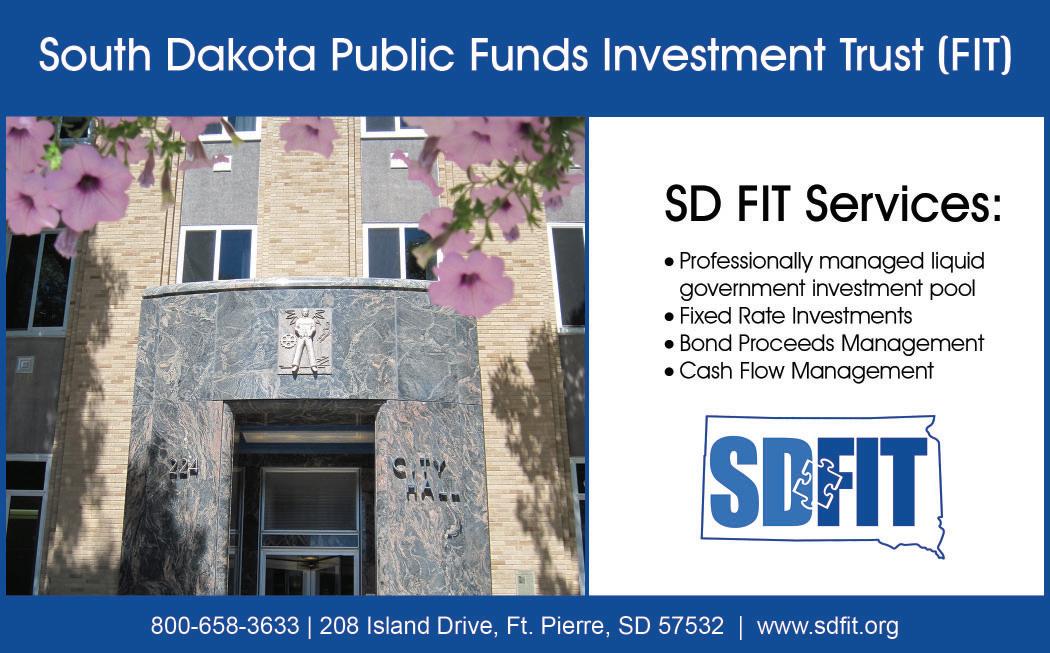
22 minute read
Municipal Elections Q & A
HOW IS A CANDIDATE FOR MUNICIPAL OFFICE NOMINATED?
For the second Tuesday in April election, no candidate for elective municipal offi ce may be nominated unless a nominating petition is fi led with the finance officer no later than five p.m. on the last Friday in February preceding the day of election. The petition shall be considered fi led if it is mailed by registered mail by fi ve p.m. on the last Friday in February before the election. The petition shall contain the name, residence address, and mailing address of the candidate and the offi ce for which the candidate is nominated and shall be on the form prescribed by the State Board of Elections. The signer's post offi ce box number may be given in lieu of a street address if the signer lives within a municipality of the second or third class. The fi nance offi cer may only accept nominating petitions that are on the prescribed form and were circulated and submitted pursuant to the provisions in chapters 9-13 and 12-6. If the nominating petition meets the statutory requirements, the fi ling of the petition constitutes nomination. (SDCL 9-13-7).
Advertisement
The statutes for combined election dates, regarding fi ling deadlines, can be found at SDCL 9-13-37, 9-13-40, 13-7-5 and 13-7-6.
Refer to the 2022 Municipal Elections Handbook for additional information:
sdmunicipalleague.org
Look under the Library menu, then Elections. HOW MANY SIGNATURES ARE REQUIRED ON A NOMINATING PETITION FOR A MUNICIPAL ELECTION?

In municipalities of the first and second class, if the candidate is to be voted for by the voters at large, a nominating petition shall be signed by five percent of the registered voters of the municipality based on the number of registered voters recorded by the county auditor on the second Tuesday in January of the year of the election. No petition needs to be signed by more than fi fty voters.
If the candidate is to be voted for by the voters of a ward or subdivision of a municipality of the fi rst or second class having more than one ward or subdivision, a nominating petition shall be signed by fi ve percent of the registered voters of the ward based on the number of registered voters recorded by the county auditor on the second Tuesday in January of the year of the election. No petition needs to be signed by more than fi fty voters.
In municipalities of the third class, if the candidate is to be voted for by the voters at large, the nominating petition shall be signed by not less than three registered voters of the municipality. If the candidate is to be voted for by the voters of a ward of a municipality having more than one ward, the nominating petition shall be signed by not less than three registered voters of the ward.
No nominating petition may be circulated until on or after the fi rst day of circulation for that election (SDCL 9-13-9). All petition signers must be active registered voters in the municipality where the candidate is being nominated. All petition signers may only sign one petition for each offi ce to be fi lled (SDCL 12-6-8), with the exception of a voter from a third class municipality is not restricted to the number of petitions which the person may sign (SDCL 9-13-9).
If a person signs more than one petition (except in a third class municipality) the fi rst valid signature presented counts. 5:02:08:00.04. Validity of petition signature when signer has signed more petitions than offi ces to be nominated. The fi rst signature presented to the fi ling offi ce which meets the requirements of SDCL 12-6-8 and §§ 5:02:08:00 and 5:02:08:00.01 is valid.
The same signature which meets the requirements of
SDCL 12-6-8 and §§ 5:02:08:00 and 5:02:08:00.01 on the next nominating petition presented to the fi ling offi ce may also be valid if the person has not signed petitions exceeding the number of candidates required to be nominated for the same offi ce. Any subsequent signature by such person on a nominating petition presented to the fi ling offi ce that exceeds the number of candidates required to be nominated for the same offi ce is not valid, except as provided in SDCL 9-13-9.
CAN ANYONE CIRCULATE A PETITION?
Yes, as long as the person is a South Dakota resident and at least 18 years of age (ARSD 5:02:08:13, SDCL 12-1-3 (11)).
A circulator can sign the petition they are circulating. MAY A CANDIDATE WITHDRAW AFTER FILING A PETITION?
Yes. Any person who has fi led a nominating petition pursuant to SDCL 9-13-7 may withdraw from the nomination by a written request, signed by the person and properly acknowledged and fi led with the fi nance offi cer of the municipality. The name of a withdrawn or deceased candidate may not be printed on the ballot if the candidate withdraws or dies no later than fi ve p.m. on the deadline day for fi ling nominating petitions (9-13-7.1).
If death or withdrawal of a candidate or candidates occurs at any time prior to fi ve p.m. on the deadline day for fi ling nominating petitions results in there being no contest on the ballot, that ballot need not be voted. In addition, if that contest constitutes the only ballot to be voted upon, then the election shall be canceled by the offi cial in charge of the election and the unopposed candidate shall be issued a certificate of election (9-13-7.1).
WHAT IF ONLY ONE CANDIDATE FILES FOR OFFICE?
No election shall be held in any municipality, or ward thereof, wherein there is no question to be submitted to
IMPROVING MOBILITY. DESIGNING BETTER PLACES. ENGINEERING CLEAN WATER. RENEWING INFRASTRUCTURE.

SOLVING YOUR MOST COMPLEX CHALLENGES.
With SEH, you are a true partner and collaborator.
Engineers | Architects | Planners | Scientists 800.325.2055 | sehinc.com/subscribe
the voters or wherein there are no opposing candidates for any offi ce; in case there are no opposing candidates the auditor or clerk shall issue certifi cates of election to the nominees, if any, in the same manner as to successful candidates after election (SDCL 9-13-5).
WHO IS ELIGIBLE TO VOTE IN A MUNICIPAL ELECTION?
SDCL 9-13-4.1 explains: 9-13-4.1. Registration and residence required to vote in municipal election—Residence defi ned—
Challenge—Contest of election. No person may vote at any municipal election unless the person is registered to vote pursuant to chapter 12-4 and resides in the municipality at the time of the election.
For the purposes of this section, a person resides in the municipality if the person actually lives in the municipality for at least thirty days each year, is a fulltime postsecondary education student who resided in the municipality immediately prior to leaving for the postsecondary education, or is on active duty as a member of the armed forces whose home of record is within the municipality. A voter’s qualifi cation as a resident may be challenged in the manner provided in SDCL 12-18-10. No election may be contested on the grounds that any nonresident was allowed to vote if the nonresident was not challenged in the manner provided in SDCL 12-18-10.
SDCL 12-1-4 explains: 12-1-4. Criteria for determining voting residence.
For the purposes of this title, the term, residence, means the place in which a person has fi xed his or her habitation and to which the person, whenever absent, intends to return.
A person who has left home and gone into another state or territory or county of this state for a temporary purpose only has not changed his or her residence.
A person is considered to have gained a residence in any county or municipality of this state in which the person actually lives, if the person has no present intention of leaving.
If a person moves to another state, or to any of the other territories, with the intention of making it his or her permanent home, the person thereby loses residence in this state.

WHAT DOES IT MEAN WHEN IT SAYS A PERSON MUST QUALIFY FOR OFFICE?
In order to qualify, a person must: A. Be a qualifi ed voter of the municipality (9-14-2); B. Reside in the municipality three months before the election (SDCL 9-14-2). If the person has resided in an area annexed, pursuant to chapter 9-4, for at least three months, he may hold any municipal offi ce. C. Not be a defaulter to the municipality (an individual that held a municipal position and absconded with city funds during their term of offi ce; page 5-6 of
SDML Handbook for Municipal Officials). This section does not apply to appointive offi cers (SDCL 9-14-2). D. Take an oath of offi ce and give a bond (SDCL 3-1-5).
Alderman candidates must be registered voters and residents of the ward they are running for when nominated (SDCL 9-8-1.1).
The person in charge of the election is responsible for notifying the person elected what they need to do to qualify. 9-13-28. Notice to persons elected—Time allowed for qualification. The finance officer, within two days after the result of the election is declared, shall notify each person elected to offi ce of the person’s election. If a person does not qualify by fi ling an oath or affi rmation of offi ce in the usual form provided by law within ten days after the fi rst meeting of the month next succeeding the election, the offi ce becomes vacant.
If an offi cial fails to qualify then a vacancy is created pursuant to SDCL 3-4-1: 3-4-1. Events causing vacancy in offi ce. An offi ce becomes vacant if one of the following events applies to a member of a governing body or elected offi cer before the expiration of the term of the offi ce; the person: (1) Dies; (2) Resigns; (3) Is removed from offi ce; (4) Fails to qualify as provided by law; (5) Ceases to be a resident of the state, district, county, municipality, township, ward, or precinct in which the duties of the offi ce are to be exercised or for which elected; (6) Is convicted of any infamous crime or of any offense involving a violation of the offi cial oath of the offi ce; or (7) Has a judgment obtained against the person for a breach of an offi cial bond.

WHO DETERMINES WHAT SIZE CAMPAIGN SIGNS CAN BE, WHEN THEY CAN BE PUT UP AND WHEN THEY HAVE TO BE TAKEN DOWN?
That is up to the local government to establish rules governing dates and sizes.
Please also note that, unless the city has adopted campaign fi nance laws or ordinances, a candidate does not have to put “paid for by…” on the campaign materials.
WHO SELECTS AND PAYS FOR ELECTION OFFICIALS?
Each voting precinct shall be presided over by an election board consisting of a minimum of two precinct deputies and one precinct superintendent appointed by the governing body (if your wards all use the same polling place you only need to appoint one election board, SDCL 9-13-36). Each precinct superintendent and precinct deputy shall receive compensation which shall be fixed by the governing body (9-13-16.1). The state board of elections has adopted a form to be used in appointing election offi cials for school or municipal elections (05:02:05:11). Refer to the kinship chart at https://sdsos.gov/elections-voting/assets/ DegreeOfKinshipChart2018.pdf when considering who you can appoint as your election offi cials. Certain relatives of candidates are prohibited from serving on election and counting boards. No person may serve on an election or counting board who is a candidate or related by blood or marriage within the second degree to a candidate who is on the ballot in that precinct (SDCL 12-15-14.3).
Federal regulations have a special exception for Election Workers – you do not need to withhold Social Security or Medicare from their paychecks if they earn less than
$1600 and do not hold any other city position. No 1099 needs to be issued. If the individual earns more than $1600 or their election pay plus their wage from their other city position is more than $1600 then you follow normal procedure for withholdings.
Any precinct superintendent or precinct deputy appointed under the provisions of SDCL 12-15-1 shall be a registered voter and a resident of the precinct for which the person is appointed. If, by the time prescribed in SDCL 12-15-1, a suffi cient number of members of the precinct election board are unable to be appointed, a vacancy may be fi lled by appointing any registered voter of the county in which the precinct is located provided the voter meets the party distribution required by SDCL 12-15-3 (SDCL 12-15-2).
WHAT CONSTITUTES AN OFFICIAL CANVASS?
The election returns shall be reported as soon as possible to the fi nance offi cer, and within seven days of the election, the governing body shall canvass the election returns, declare the result, and enter the result on its journal (SDCL 9-13-24).
Please note that the voter registration list is considered a public record.
A quorum of council needs to be present for the canvas since a majority vote to approve the canvas needs to be taken and recorded.
The person in charge of the election can destroy the voted ballots and pollbook from a non-federal election sixty days following the election. However, they may not be destroyed if a recount or contest of the election is pending (SDCL 12-20-31).
WHAT IS THE PROCEDURE FOR ABSENTEE VOTING?
The application, receipt for absentee ballot, guidelines for acceptance, combined application return envelope, envelope for transmitting application, envelope for sending ballots, instructions to voter, offi cial return envelope for ballots, offi cial record of absentee ballots delivered to voters and envelopes for use with voting service and overseas ballots can all be found at ARSD 05:02:10.
Any registered voter may vote by absentee ballot in one of two ways – in person or by mail. Voters do not need to provide a reason in order to absentee vote (SDCL 12-19-1). It is important to note that absentee ballots have to be available no later than 15 days prior to the Election Day (SDCL 9-13-21).
An absentee voter desiring to vote by mail may apply to the person in charge of the election for an absentee ballot. The application or request shall be made in writing and be signed by the applicant and state the applicant’s voter registration address. The application or request (except from overseas military or overseas citizen voters) shall contain an oath verifying the validity of the information contained in the application or request. The oath shall be administered by a notary public or other offi cer authorized by this state to administer an oath or administered by an out-of-state notary public. If the application or request does not contain an oath, the application or request shall be accompanied by a copy of the voter’s identifi cation card as required by § 12-186.1.The application or request may be used to obtain an absentee ballot for all elections in that calendar year conducted by the jurisdiction receiving the application or request if so indicated (SDCL 12-19-2). If you receive an absentee ballot application that also indicates other elections that they want a ballot for, please make sure to send a copy of the application to those jurisdictions.
At any time prior to an election, a voter may apply in person at the offi ce of and to the person in charge of the election for an absentee ballot during regular offi ce hours up to 5:00 p.m. on the day before the election (SDCL 12-19-2.1). If the voter applies in person, the voter shall complete a combined absentee ballot application/ return envelope and show the person in charge of the election the voter’s identifi cation card as required in SDCL 12-18-6.1 or complete the affi davit as provided in SDCL 12-18-6.2.
In the event of confi nement because of sickness or disability, a qualifi ed voter may apply pursuant to the provisions of SDCL 12-19-2 in writing for and obtain an absentee ballot by authorized messenger so designated over the signature of the voter. The person in charge of the election may deliver to the authorized messenger a ballot to be delivered to the qualifi ed voter. An application for a ballot by authorized messenger must be received by the person in charge of the election before 3:00 p.m. the day of the election. If an application designating an authorized messenger also indicates a request for an absentee ballot for any future election, such absentee ballot shall be mailed to the address provided on the application. If no address is provided, the ballot shall be mailed to the person’s voter registration address (SDCL 12-19-2.1).
The voter must sign a statement on the absentee ballot envelope prior to returning the ballot. All voted ballots must be returned to the person in charge of the election in time to be delivered to the appropriate polling place prior to the closing of the polls.
Any voter identifi ed as being covered by the Uniformed and Overseas Citizens Absentee Voting Act (42 U.S.C. 1973ff-1) as of January 1, 2011, may submit an application or request for an absentee ballot by facsimile or emailed image to the person in charge of the election. The secretary of state may authorize a person in charge of an election to accept an application or request for absentee ballot pursuant to this section through the system provided by the Offi ce of the Secretary of State (SDCL 12-19-2.3).
A finance officer is not authorized in law to go to nursing facilities or care centers etc. to help citizens vote absentee. Those individuals need to request an absentee ballot through the regular process. A fi nance offi cer or other city employee would be able to drop off absentee ballot applications. Only if a voter puts the fi nance offi cer as their authorized messenger would the fi nance offi cer be able to bring a ballot to them to vote. We encourage fi nance offi cers to not do this since you are the person in charge of running the election. The administrator at the facility could be the authorized messenger.
If any voter who had previously fi led an application or request for an absentee ballot submits another application or request for the same election with an updated address, the county auditor shall send an absentee ballot to the new address. If any voter who had previously fi led an application or request for absentee ballot appears at the county auditor’s offi ce, the voter may complete another application and be allowed to vote an absentee ballot. If any voter who fi led an application or request for absentee ballot notifi es the county auditor that the voter never received that ballot, the voter may request that another ballot be sent to the same address. The provisions of this section only apply to a person who has not voted or returned an absentee ballot (SDCL 12-19-2.4). If a registration form is received simultaneous with an absentee ballot request and prior to the registration deadline, the absentee ballot provided shall be based on the submitted registration form (SDCL 12-19-3).

WHAT IS THE PROCEDURE FOR COMBINING ELECTIONS WITH THE SCHOOL DISTRICT OR COUNTY?
With School District: The members of the governing body of a municipality may choose to hold a general municipal election in conjunction with a regular school district election. The combined election is subject to approval by the governing body of the school district. The combined election shall be held on the regular date set for either the general municipal election or the school district election and all dates associated with either election pursuant to chapters 9-13 and 13-7 shall be adjusted accordingly. Expenses of a combined election shall be shared in a manner agreed upon by the governing bodies of the municipality and the school district. All other governmental responsibilities associated with holding elections under the provisions of chapters 9-13 and 13-7 shall be shared as agreed upon by the governing bodies (SDCL 9-13-1.1). With County: The members of the governing body of a municipality may choose to hold a municipal election in conjunction with the regular June primary election. The combined election is subject to approval by the county commissions of the counties in which the municipality is located. Expenses of a combined election shall be shared in a manner agreed upon by the governing body of the municipality and the county commissions involved. All other governmental responsibilities associated with holding elections under the provisions of chapter 9-13 and Title 12 shall be shared as agreed upon by the governing bodies. The fi nance offi cer shall publish the notice required in SDCL 9-13-6 between February fi fteenth and March fi rst. No nominating petition may be circulated for signatures until March fi rst. Nominating petitions shall be fi led under the provisions of SDCL 9-13-7 by the last Tuesday in March. The finance offi cer shall certify to the appropriate county auditor the candidate names and ballot language to be voted on by the fi rst Thursday after the last Tuesday in March (SDCL 9-13-37).
A Strong Public Finance Partner in South Dakota
D.A. Davidson & Co. is committed to strengthening the infrastructure and enriching the lives of people in our communities throughout South Dakota and across the nation. Our public finance bankers average over 20 years of experience in conventional fixed-rate debt financing, variable-rate bonds, creditenhanced structures and non-rated bonds.

Gerald J. Spethman, Jr.
Senior Vice President, Public Finance Banker (402) 392-7933 (866) 466-9368
JSpethman@dadco.com
Primary areas of focus include:
Cities Counties School Districts Rural Water Utility Finance Healthcare Finance Lease-Purchase Financing Nonprofit Entities Alternative Energy

450 Regency Parkway | Suite 400 | Omaha, NE | dadavidson.com
WHAT ARE THE HOURS FOR MUNICIPAL ELECTIONS?
The polls shall be opened at the hour of seven o’clock a.m. and remain continuously open until seven o’clock p.m., standard time or daylight savings time, whichever is in effect. However, no polling place may be closed at any election until all the voters who have presented themselves at the polling place inside or outside for the purpose of voting prior to the time of the closing of the polls shall have had time to cast their ballots (SDCL 12-2-3, 9-13-1).
ARE CANDIDATES IN MUNICIPAL ELECTIONS REQUIRED TO FILE FINANCIAL INTEREST STATEMENTS?
Yes, if in a fi rst class municipality. Every person elected or appointed to any civil offi ce shall, before entering upon the duties thereof, qualify by taking an oath or affi rmation to support the Constitution of the United States and of this state, and faithfully to discharge the duties of his offi ce, naming it; and by giving a bond, when one is required, conditioned that he will faithfully and impartially discharge the duties of his offi ce, naming it, and render a true account of all money, credits, accounts, and public personal property requiring inventory, as defi ned in rules issued by the commissioner of the bureau of administration, that shall come into his hands as such offi cer, and pay over and deliver the same according to law (SDCL 3-1-5). Any candidate for county commissioner, school board member in a school district with a total enrollment of more than two thousand students, or commissioner, council member, or mayor in any fi rst class municipality, shall fi le a statement of fi nancial interest with the offi ce at which the candidate's nominating petitions are fi led not more than fi fteen days after fi ling the candidate's nominating petitions or, if otherwise nominated, not more than fi fteen days after the candidate's nomination is certifi ed. Any violation of this section is a petty offense. An intentional violation of this section is a Class 2 misdemeanor. (SDCL 12-25-30).
DO ANY CAMPAIGN FINANCE REPORTING REQUIREMENTS APPLY TO MUNICIPAL ELECTIONS?
Only for 1st class municipality ballot question committees or if a city has adopted campaign fi nance ordinances.
Campaign fi nance requirements apply to each statewide office, legislative office, statewide ballot question, county offi ces and ballot questions in counties with population greater than ten thousand according to the most recent Federal census, ballot questions in fi rst class municipalities, and school district offi ces and ballot questions in school districts with more than two thousand average daily membership. Any municipal or school district election covered by this chapter shall conform to the contribution limits applicable to legislative offi ces. This chapter does not apply to the unifi ed judicial system, nor does this chapter apply to any township or special purpose district offi ces or ballot questions or elections for municipal offi ces. However, the governing body of any county, township, municipality, school district, or special purpose district not otherwise covered by this chapter may adopt an ordinance or resolution to make the provisions of this chapter, with or without amendments, applicable to county, township, municipal, school district, or special purpose district elections. (SDCL 12-27-39).
Municipalities have the option of adopting provisions of state law regarding campaign fi nancing for organizations contributing to ballot question committees. If such an ordinance is adopted, information to be contained in the statements is contained in SDCL 12-27-19 and 12-2722 through 28.
The Secretary of State’s offi ce has campaign fi nance information available at https://sdsos.gov/electionsvoting/campaign-fi nance/default.aspx
WHO CAN REGISTER VOTERS?
The county auditor has complete charge of maintaining the voter registration records in the county. Voter registration shall be conducted by county auditors and municipal fi nance offi cers. Voter registration shall be available at the Secretary of State’s offi ce and at those locations which provide driver’s licenses; food stamps; Temporary Assistance for Needy Families; women, infants, and children nutrition programs; Medicaid; military recruitment; and assistance to the disabled as provided by the Department of Human Services (SDCL 12-4-2).
Voter registration forms can be printed at your local printing company or you can print the form off of the Secretary of State’s website. Go to www.sdsos.gov and click on Register to Vote under the Elections & Voting tab. ■
DO YOU HAVE CITY NEWS TO SHARE?
Email us your copy (250 words) detailing your city’s notable achievement - a project, initiative, award, or individual honor. Include an image if possible.










